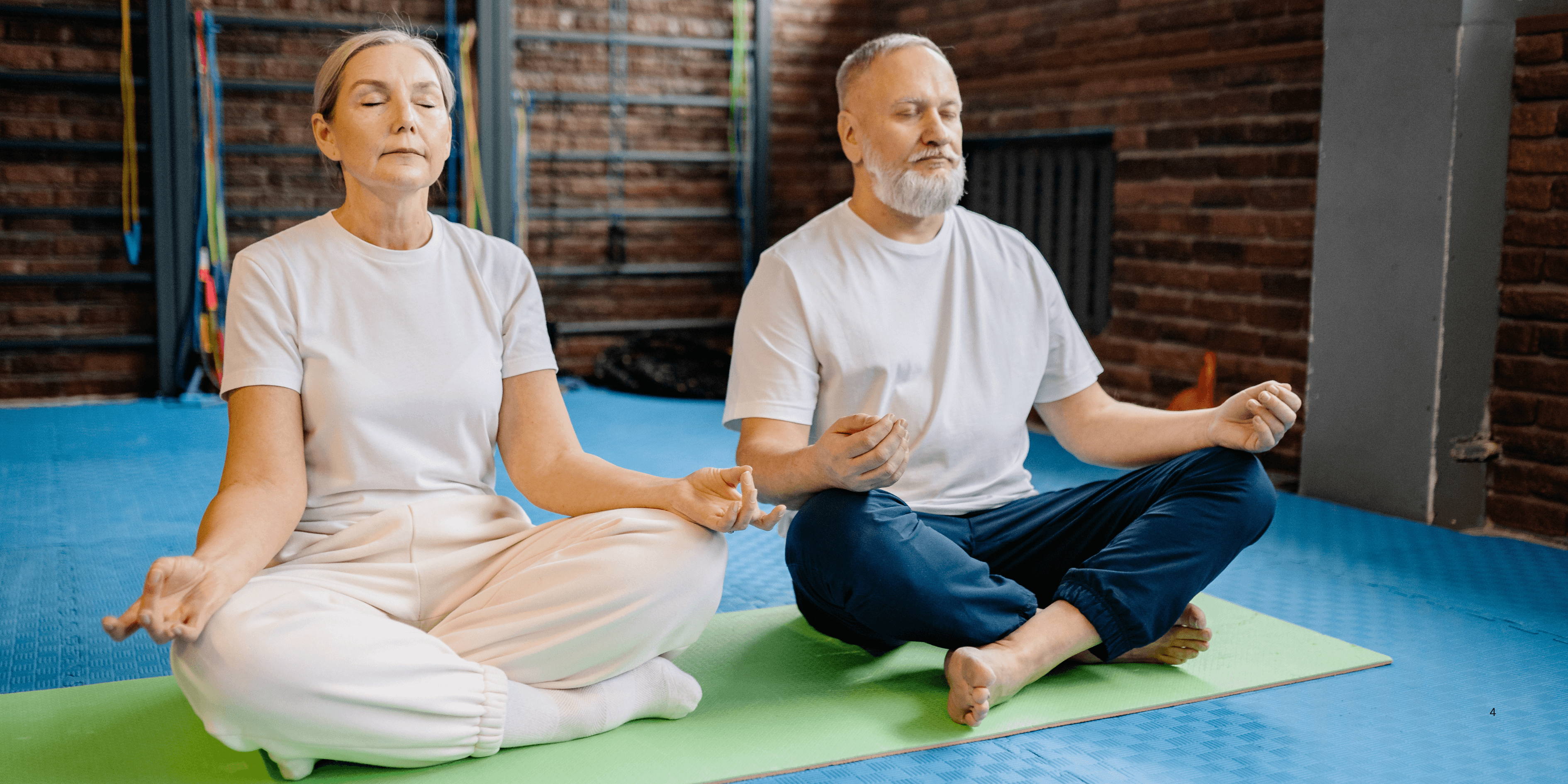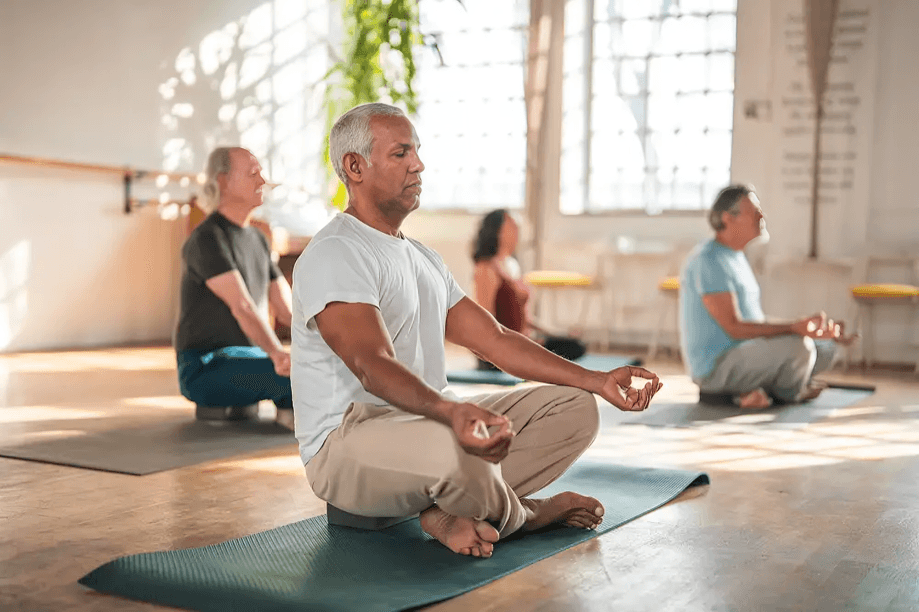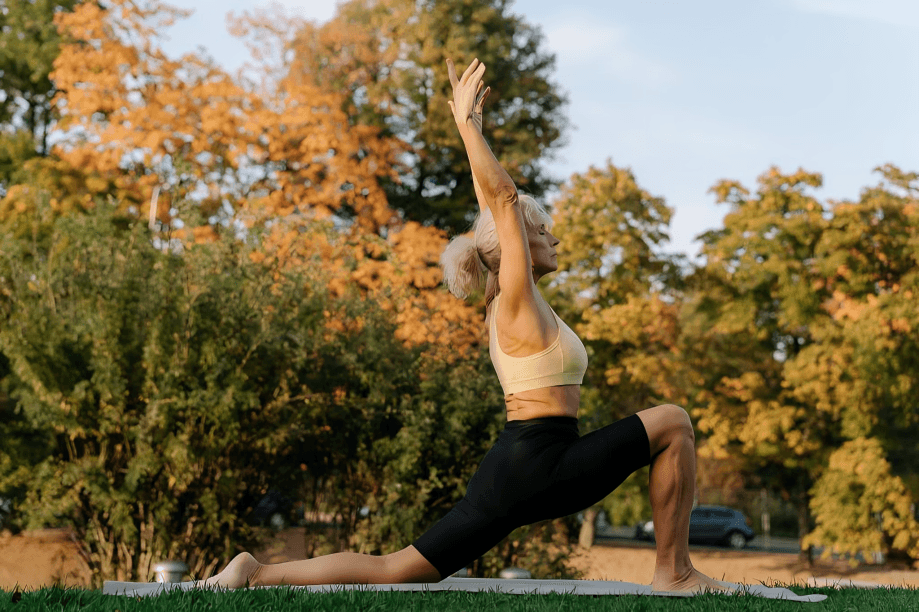
“
The Role of Meditation & Mindfulness for Seniors is becoming increasingly recognized in modern wellness routines. As older adults face unique physical, emotional, and cognitive changes, these ancient practices provide an effective, non-invasive way to improve overall well-being. 1
1
”
Regular meditation can slow cognitive decline in seniors by increasing brain plasticity, promoting memory retention, and enhancing attention span, making it a helpful practice for aging minds. 1
Mindfulness reduces stress hormone cortisol levels in older adults, leading to improved sleep quality, reduced tension, and a more peaceful emotional state, especially for those with anxiety or depression. 2

Seniors who practice guided meditation show improved cardiovascular health, as it helps regulate blood pressure and decrease heart rate, reducing risks of heart disease and stroke.
Practicing mindfulness helps older adults manage chronic pain by changing how the brain perceives pain signals, offering relief without relying solely on medications or invasive treatments. 3
Group meditation sessions create social connections among seniors, easing feelings of loneliness and isolation, while also fostering a sense of shared purpose and emotional bonding. 4
Deep breathing techniques in meditation calm the nervous system, enhancing emotional control in seniors and helping them respond to life’s challenges with clarity and inner strength. 5
Studies show seniors who practice mindfulness enjoy better digestive health, as stress reduction improves gut function and can ease issues like irritable bowel syndrome or indigestion. 6
Mindfulness practices encourage healthy eating habits by making seniors more aware of hunger cues, leading to better nutrition, slower eating, and improved digestion. 7
Practicing meditation regularly improves balance and coordination in seniors, which helps prevent falls—a major concern for older adults—by enhancing body awareness and mental focus. 8

Seniors who meditate report fewer symptoms of insomnia, as mindfulness calms racing thoughts and helps regulate the sleep cycle, contributing to deeper and more restorative rest.
Mindfulness training can enhance emotional intelligence in older adults, allowing better handling of grief, mood swings, and emotional outbursts often triggered by age-related life changes. 9
Mindfulness meditation strengthens the immune system, making seniors more resilient to illness by reducing inflammation and boosting infection-fighting cells naturally over time. 10
Practicing gratitude meditation helps older adults appreciate daily life more deeply, bringing joy in small moments and reducing negative thinking patterns associated with loneliness or regret. 11
Guided body scan meditation improves body awareness in seniors, helping them detect and address aches or discomfort early, which supports better physical health and timely care. 12
Seniors with early-stage dementia who practice mindfulness report reduced confusion and anxiety, as meditation grounds them in the present, improving quality of life and emotional stability. 13

Short daily meditation sessions have been linked to sharper decision-making skills in older adults, as they promote mental clarity and reduce impulsive or emotionally driven choices.
Mindfulness programs offered in senior centers and retirement homes often improve residents’ mood, social engagement, and sense of purpose through structured yet gentle daily practices. 14
Mindfulness practice has been shown to reduce medication dependency in some seniors by offering natural ways to manage anxiety, depression, and even mild pain symptoms. 15
Philosophers like Lao Tzu and Marcus Aurelius emphasized inward reflection and calm observation—ideas mirrored in today’s mindfulness, now validated by modern science for senior wellness. 16
Seniors who embrace meditation and mindfulness tend to live more meaningful, peaceful lives—connecting deeply with themselves, others, and the present moment as part of graceful aging. 17


